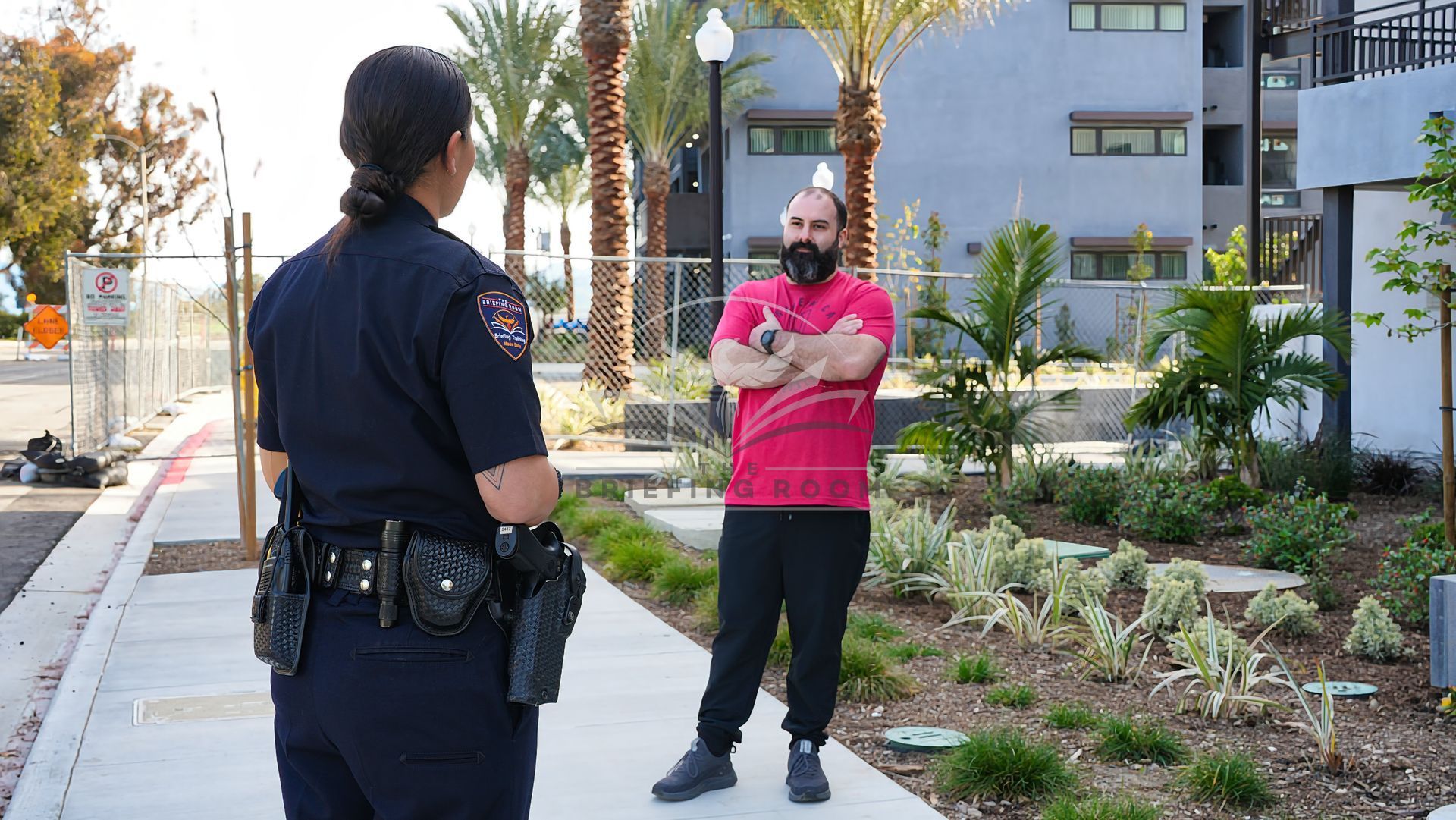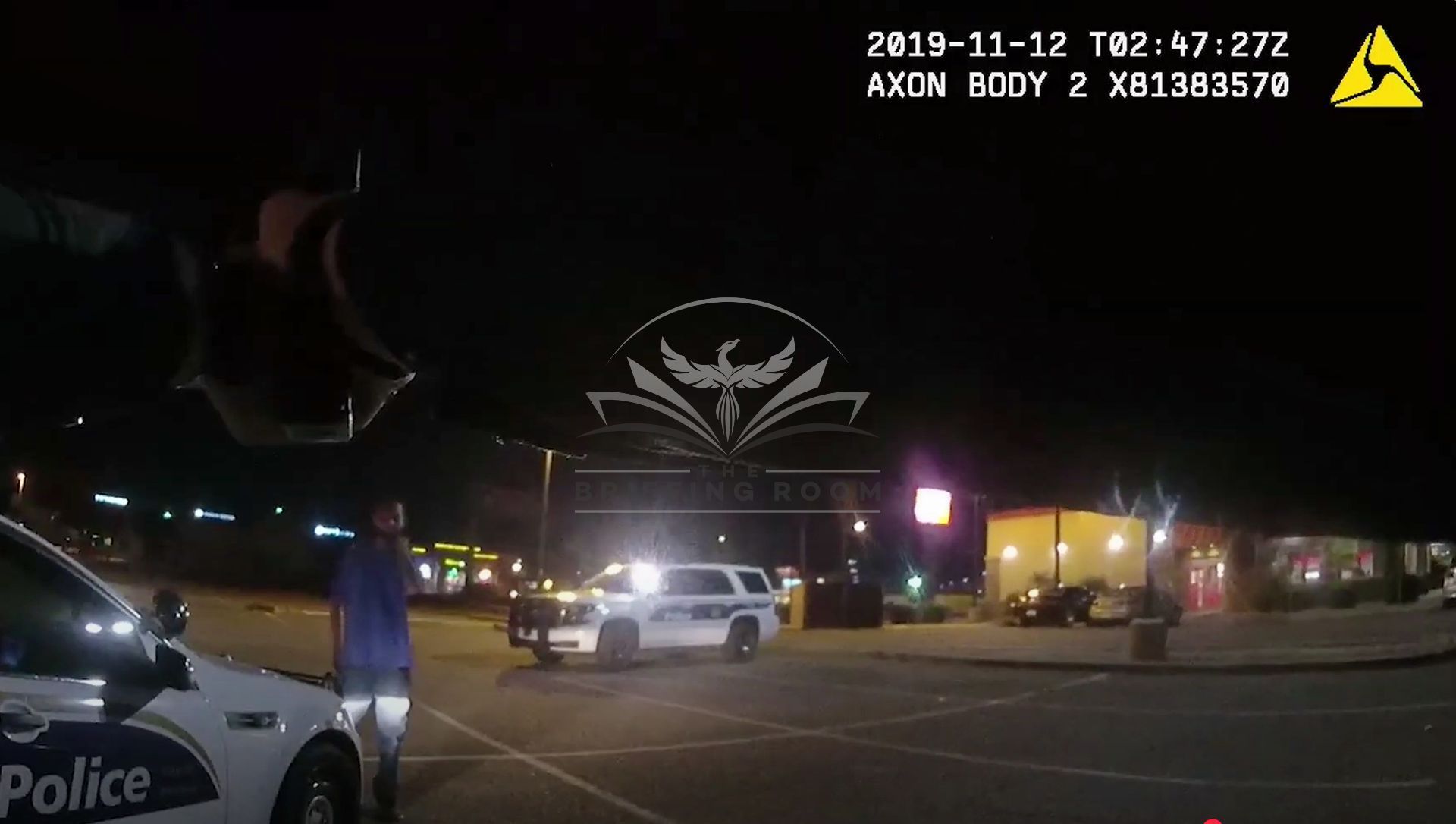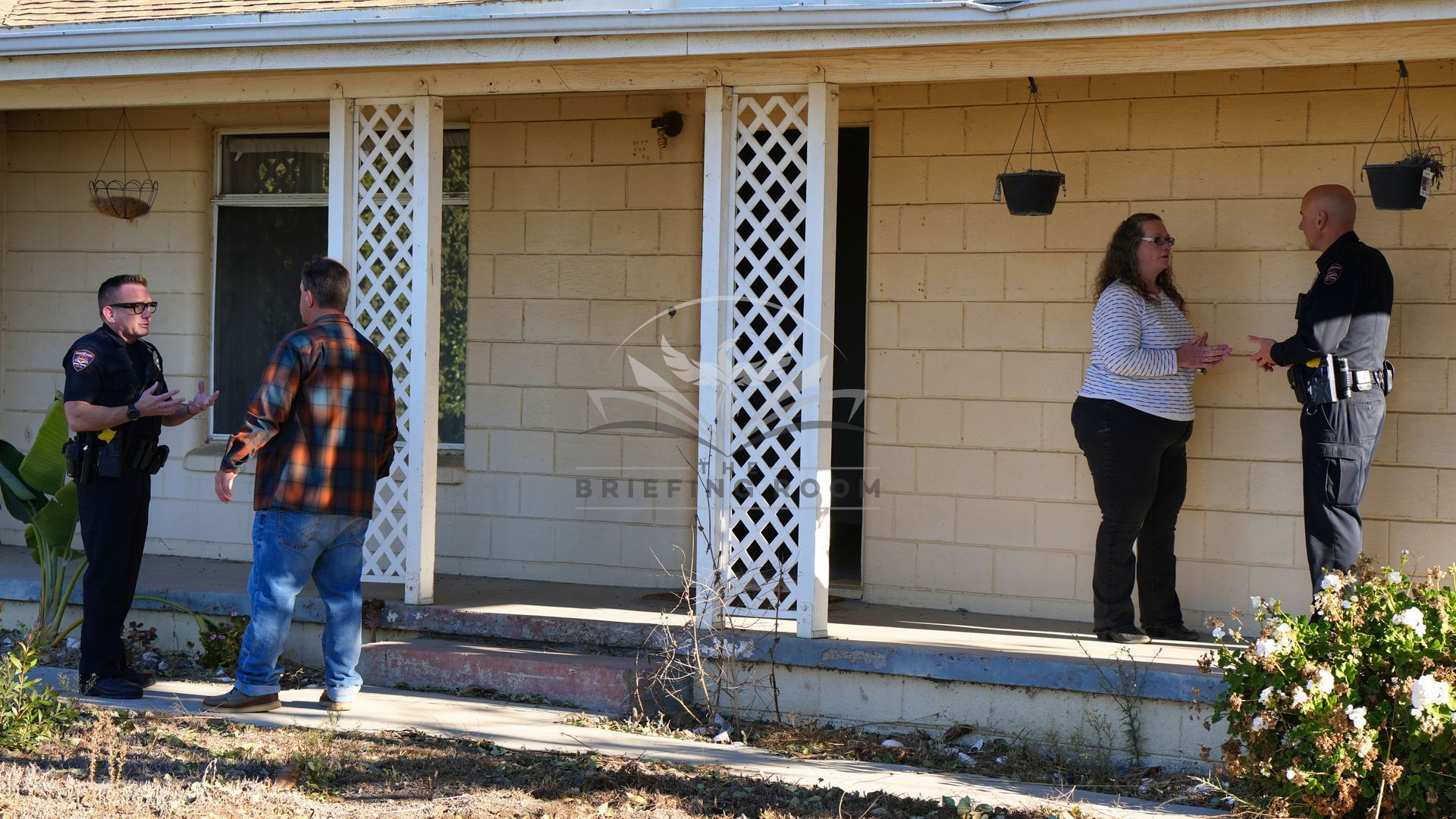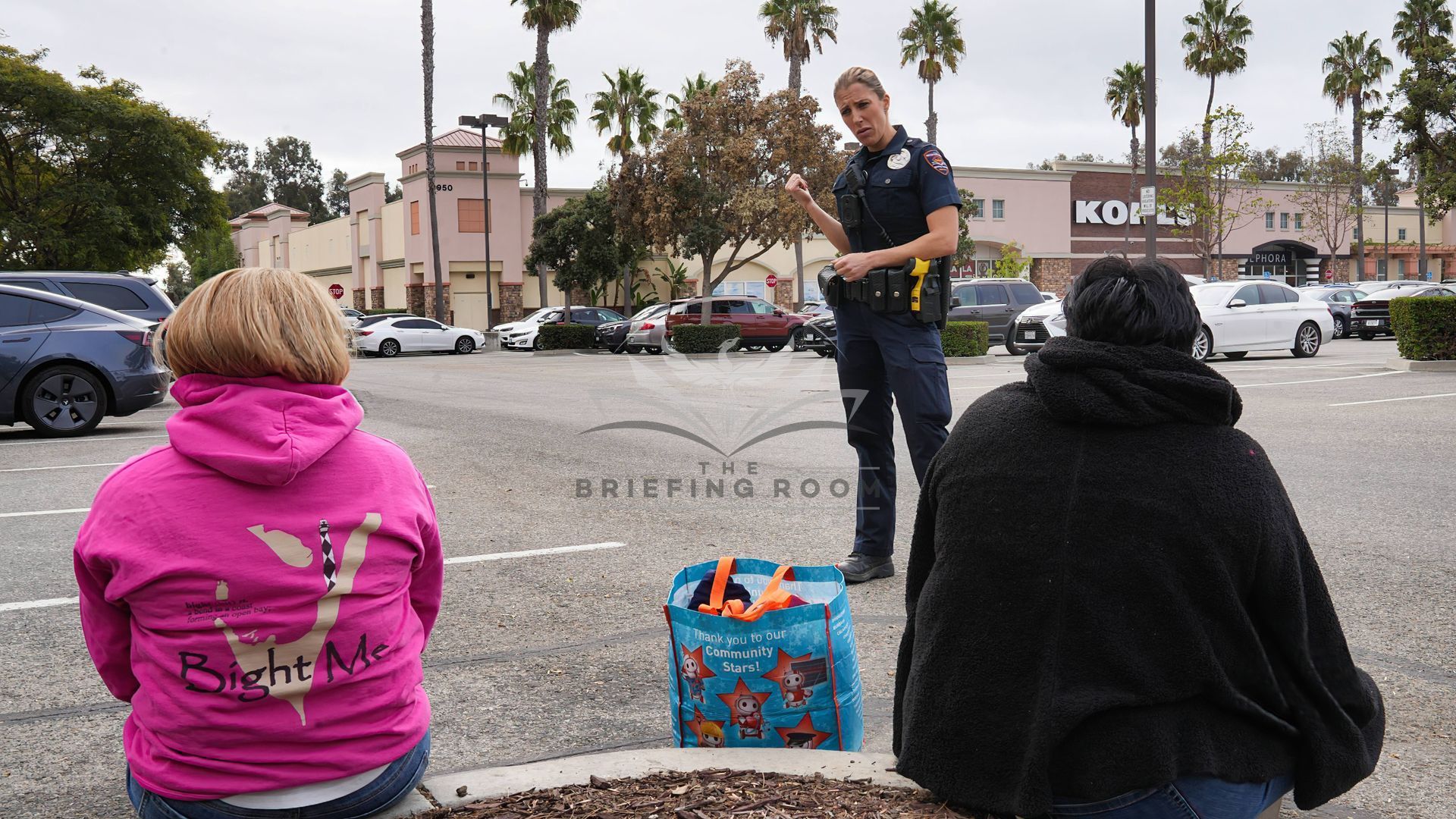How Far Away is "Physically Present" for Consent Searches?

This post is only offered as a discussion topic only and does not represent legal advice. Officers must refer to the laws in their own State as well as their agency's policies, which can be more restrictive on officers that the law requires.
Scenario: While working patrol, a Police officer is speaking to a man at the bottom of a set of stairs that lead to his upstairs apartment. The officer's partner is speaking to his girlfriend inside the apartment. The officer's partner asks the girlfriend if he can search the apartment for contraband and she agrees. But the male half yells out from the base of the stairs, "Don't let the cops in, and don't talk to them!" Can officers search the apartment based on the girlfriend's consent?
How Far Away is "Physically Present" for Consent Searches?
Answer: We know from the 1974 case United States v Matlock that if there are two people who live at a residence, and only one is present when the police ask for consent, the approval or refusal to allow the search is based on what the person who is physically present at the residence says.
Now, what about two cohabitants that are present at a residence and one says you can search, and the other says you can not? The United States Supreme Court addressed that in the 2006 case Georgia v. Washington when they said that a warrantless search of a shared dwelling cannot be justified "over the express refusal of consent by a physically present resident." So therefore, you would not be allowed to conduct the consent search if one of the cohabitants who is present objects to the search.
But in our scenario above, the man is outside of his apartment at the base of the stairs when he objects to the police officer's search. So the problem for the officer becomes, is he considered to be physically present at the residence? And that issue was just addressed in the 2024 9th Circuit Court of Appeals case USA v. Parkins. After the court explained that the man was both within line of sight of his apartment and close enough to have made an easy entry had the officers allowed to him to return AND that he was so close that even the officers inside the apartment could hear his objections, the court said, "In light of the layout of the property and (the suspect's) close proximity to his apartment, the nearby mailboxes bordering the parking lot where (the suspect) was detained were part of the relevant premises. Thus...(the suspect) was physically present on the premises to validly object."
So therefore, even though the man was outside of his apartment, he was still physically present and his objection to the consent search was what the officers should have followed. As always, this entire case is provided in the additional resources on www.TheBriefingRoom.com video and officers should make sure your refer to their agency's policy which can more restrictive than the law requires.
The Briefing Room has a short training video available on this exact scenario so agency supervisors can easily train every officer in your agency on this essential topic.
90-Second Training Videos Your Supervisors Use During Briefing or Roll Call To Develop High-Performing Teams of Officers.
✅ Lower Liability
✅ Retain Officers
✅ Build Community Support
🌟 Produced Exclusively by Active-Duty Law Enforcement Instructors 🌟



